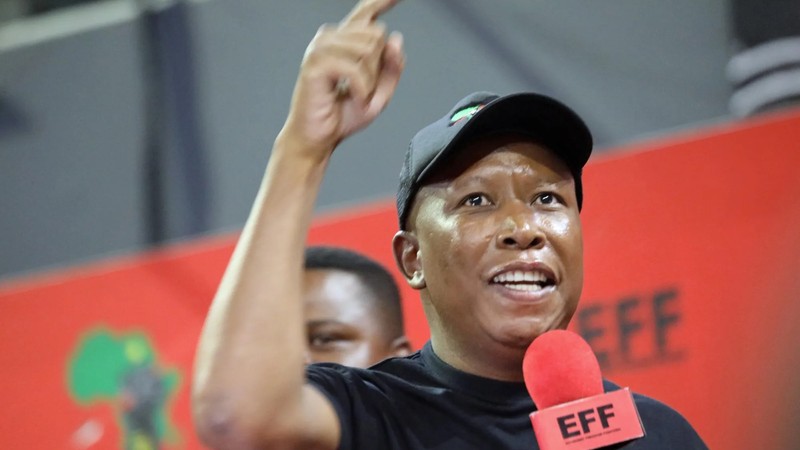Malema blasts Equality Court ruling as 'grave distortion' in hate speech case
EFF President Julius Malema has vehemently rejected Wednesday’s Equality Court ruling that found his statements constituted hate speech and incitement to violence, labelling the judgment a “grave distortion of history, philosophy, and the nature of political speech in a democratic society”.
The ruling by the Western Cape Division of the Equality Court upheld claims by the South African Human Rights Commission (SAHRC) and Dante van Wyk against Malema and the EFF.
The SAHRC initiated the litigation in November 2022 following public complaints about comments Malema made at a political gathering in Cape Town in October 2022.
The court specifically cited Malema’s remarks in which he challenged the white race and threatened to kill.
“You must never be scared to kill. A revolution demands that, at some point, there must be killing. This is a war between white supremacy and black consciousness, you must know the two will never meet,” and “Racism is violence and violence can only be ended by violence,” Malema said at the time.
The court found these statements could “reasonably be construed as demonstrating a clear intention to incite harm” and violated Section 10 of the Equality Act.
Malema, however, argued that the court’s conclusion is “fundamentally flawed and deliberately misreads both the context and the meaning of the speech”.
He asserted that the court interpreted his statements as “literal instructions to kill white people”, stripping the speech of its “political, historical, and ideological context, reducing a revolutionary critique to criminality”.
“It assumes that the reasonable listener is incapable of understanding metaphor, revolutionary rhetoric, or the history of liberation struggles,” Malema said.
He added that the court ignored the nature of the occasion, which was a political assembly where revolutionary theory, strategy, and history are discussed, and treated the speech as if it were a direct operational command to commit murder.
Malema highlighted three “critical realities” he believes the court ignored.
He explained that his remarks followed an incident where white racists assaulted black protesters at the Brackenfell High School incident. His comments emphasised that “racism itself was violence and could not be passively endured”.
Malema stressed that South Africa was built on structural and physical violence against black people, and the anti-apartheid Struggle included armed resistance as “the system left no alternative”.
He further explained that as a Marxist-Leninist and Fanonian movement, the EFF’s analysis recognises class and racial contradictions.
“When I spoke of ‘war’, it was a reference to the irreconcilable conflict between white supremacy and black consciousness – a war of ideas and systems, not an instruction to kill white people,” he said.
Malema further contended that “to criminalise this language was to criminalise black consciousness and silence any radical critique of white supremacy”.
“This judgment ignores that principle and instead aligns itself with an agenda that seeks to delegitimise revolutionary discourse,” Malema said.
The Red Berets leader further described the ruling as “an attack on the democratic space and the right to articulate revolutionary politics”.
He argued that “the language of revolution cannot be sanitised to comfort the sensitivities of those who continue to enjoy the fruits of colonial dispossession and have never experienced racial violence whatsoever. The real violence is the daily reality of landlessness, unemployment, and racism that black people endure.”
In a statement, the party announced its intention to challenge the ruling at the Supreme Court of Appeal, saying it would not only defend Malema, but also defend political freedom.
The SAHRC welcomed the judgment, noting that it reaffirms the importance of upholding constitutional values in a diverse and democratic society.
Malema has been at loggerheads with officials in the West over the comments he has made.
In June, he responded to the United Kingdom (UK) Home Office after he was denied entry to the country.
His vocal support for Hamas, including a speech made after the October 7, 2023, attack on Israel, where he stated that his party would arm the group if they came to power, was cited by the Home Office.
Malema was also criticised by US President Donald Trump in a confrontational meeting with President Cyril Ramaphosa in May.
Trump played a video of the EFF leader singing an anti-apartheid song, which refers to white farmers.
Malema shrugged off the video, saying he would never bow down to Trump.
mashudu.sadike@inl.co.za

